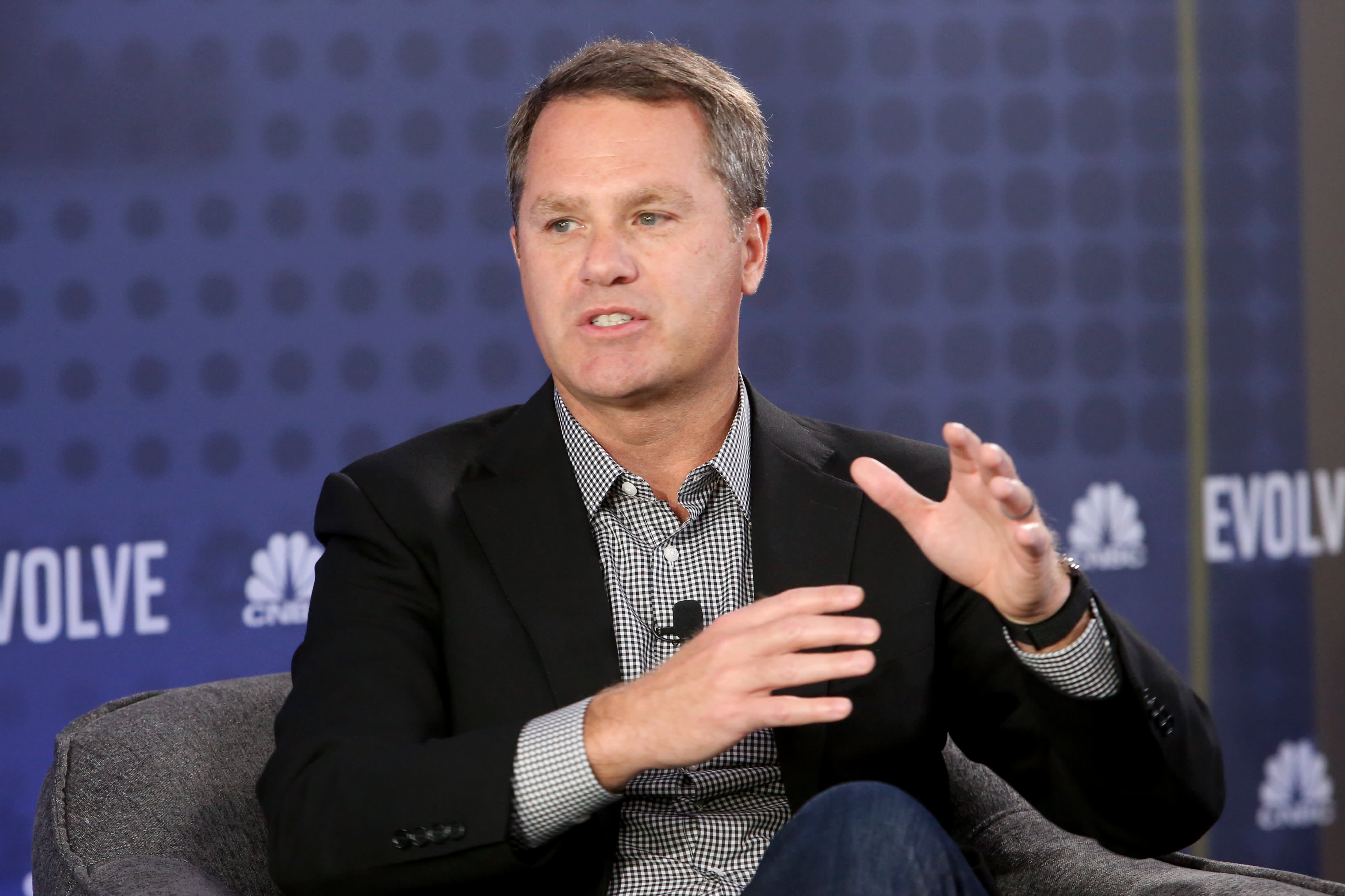
Walmart Chief Executive Doug McMillon said Friday the country’s top CEOs will look for ways to address racial inequities that span society, from how the world of finance works to how police treat black Americans.
In an interview on CNBC’s “Squawk Box,” McMillon said the death of George Floyd, an unarmed black man pinned down by a Minneapolis police officer who kneeled on his neck, has prompted new urgency to do more than just donate money. McMillon, who is chairman of the Business Roundtable, announced the group of business leaders will form a special committee to advance racial equality and justice solutions.
“What we see is a moment here, a moment where we can make a bigger difference,” he said.
In cities across the country, hundreds of thousands of protestors have marched in the streets and called for the end of police-involved killings of blacks. The coronavirus pandemic has underscored and exacerbated racial disparities, too.
Covid-19 has killed at least 22,204 black people in the U.S., according to the COVID Racial Data Tracker. Black Americans have made up 24% of the country’s coronavirus deaths where race is known, but account for only 13% of the overall population.
The economic fallout has disproportionately hurt black Americans, too. The unemployment rate among black Americans was 16.7% in April — higher than the overall rate of 14.7%.
Business Roundtable will be studying a problem that’s clear, even in its ranks. Like in many C-suites across the U.S., the vast majority of its members are white and male. Only four Fortune 500 companies are led by black chief executives.
McMillon said companies represented in the Business Roundtable have worked on diversity and inclusion initiatives. Now, though, he said, it’s time to do more.
“There’s this moment here where the country is experiencing horrendous pain as a result of what happened with George Floyd’s murder and all of us seeing that on TV, but we all know that that was just one isolated event of many,” he said. “This isn’t about just one tragic event. It’s about what’s happened in our country for a long, long time and what’s happening today.”
He said corporations’ charitable giving is important, “but that’s not enough.”
“This conversation’s got to be longer-term and more lasting,” he said. “When we have events like this, sometimes there’s a surge of energy and passion and emotion and people will give money, which again is good, but then we get distracted and we move on to something else and the lasting change doesn’t happen because we didn’t do the work to get through complexities.”
McMillon said he will meet Friday with Walmart employees to discuss how the retailer will advocate racial equity and justice within the company and beyond it.
In an email to employees Friday, he said the company and the Walmart Foundation will commit $100 million over five years to create a new center on racial equity. He said the center “will seek to advance economic opportunity and healthier living, including issues surrounding the social determinants of health, strengthening workforce development and related educational systems, and support criminal justice reform with an emphasis on examining barriers to opportunity faced by those exiting the system.”
He said Walmart will step up recruitment of and support for people of color, including African Americans.
“We’ve made a difference in the world in so many ways,” he wrote. “We can make a meaningful, lasting difference in racial equity, too.”
With the Business Roundtable, McMillon said the special committee will focus on racial equality in four primary areas: finance, health care, education and workforce, and criminal justice. Some of the country’s biggest corporate names will lead the effort, such as JPMorgan CEO Jamie Dimon heading up the finance area and AT&T CEO Randall Stephenson leading the criminal justice area.
Last year, the group issued a statement that defined the “purpose of the corporation” differently and said shareholder value is not the singular focus.
“While each of our individual companies serves its own corporate purpose, we share a fundamental commitment to all of our stakeholders,” said the statement signed by 181 CEOs. “We commit to deliver value to all of them, for the future success of our companies, our communities and our country.”



